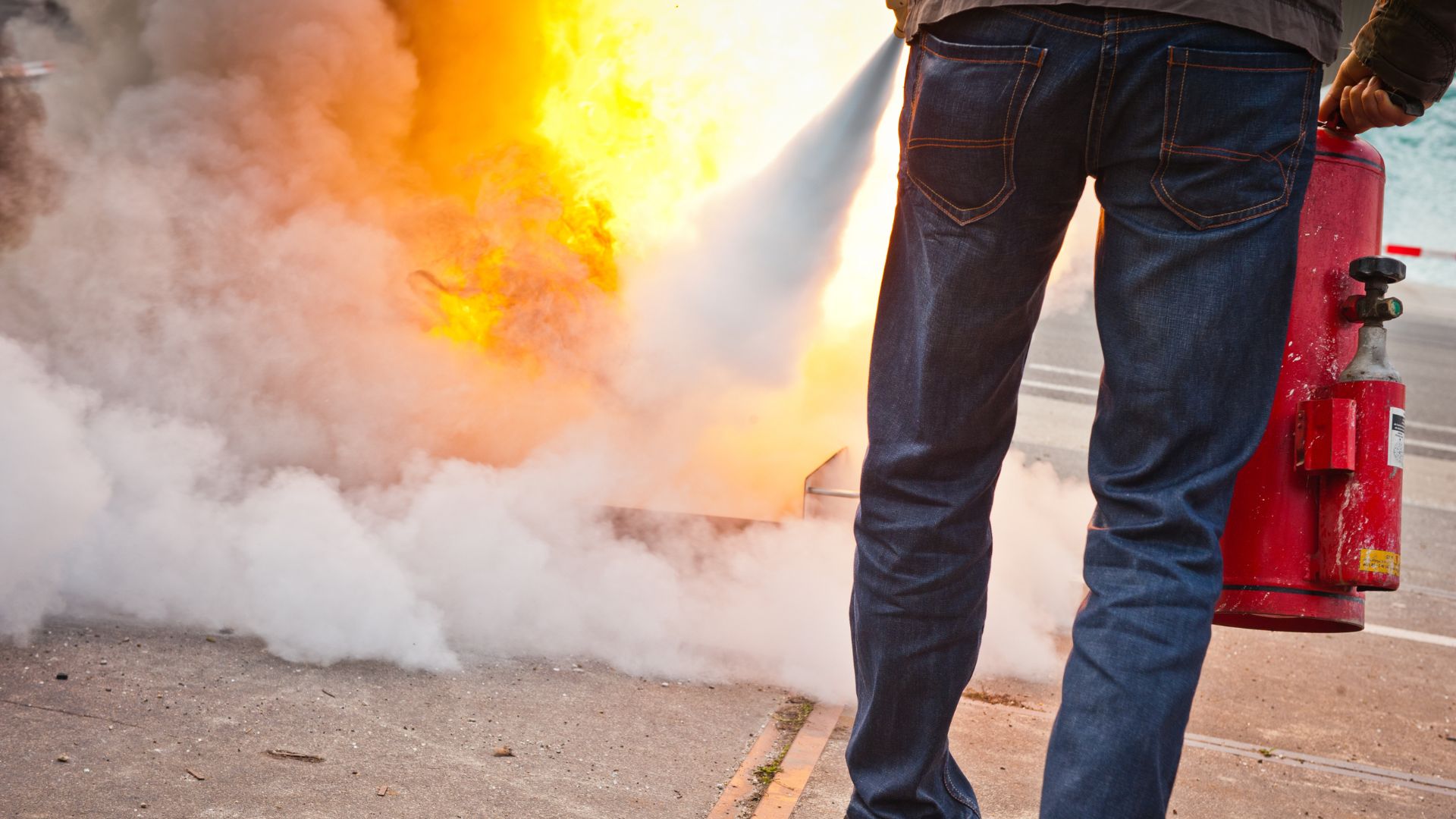Lifestyle
Everything You Need to Know About Fire Watch Guards

Fire watch guards are an important part of any fire safety plan. They provide an extra level of safety for people and property in the event of a fire. In this blog post, we will discuss everything you need to know about fire watch guards! We will cover what they do, how they work, and why they are important. We will also answer some common questions about fire watch guards.
What Does a Fire Watch Guard Do?
Fire watch guards are on-site personnel who are responsible for fire safety and prevention. They patrol the premises, check for any potential fire hazards, and ensure that smoke detectors and sprinklers are functioning properly.
In addition to this, they also keep an eye out for any suspicious or unauthorized activity on the property. If a fire does start, they will alert the proper authorities immediately so that it can be contained quickly.
How Do Fire Watch Guards Work?
Fire watch guards are usually equipped with walkie-talkies, so they can communicate with each other and contact the proper authorities if needed. They can also be outfitted with surveillance cameras to monitor activity on the premises.
In some cases, fire watch guards may be asked to provide security for special events or locations where there is an increased risk of fires occurring. They will check evacuation plans, inspect exits and stairwells, and make sure all safety protocols are being followed.
Why Are Fire Watch Guards Important?
Fire watch guards play an important role in keeping people safe in the event of a fire. By patrolling the premises and monitoring potential hazards, they can quickly alert the proper authorities if a fire does occur. This ensures that the situation can be contained quickly, limiting the amount of damage caused.
Fire watch guards also provide an extra layer of security for special events or locations where there is an increased risk of fires. They are trained to identify potential hazards and act swiftly in order to contain any fires that may start.
Common Questions About Fire Watch Guards
What qualifications do fire watch guards need?
Most fire watch guards are required to have at least basic training in first aid and CPR, as well as experience with fire safety protocols. Some states may also require them to have additional certifications, such as those related to hazardous materials handling or evacuation plans.
How much do fire watch guards make?
The salary of a fire watch guard can vary depending on experience and location. Generally, they make between $12 and $20 an hour.
Do I need to hire a fire watch guard?
If you have a business or event taking place in a building, it is always recommended that you hire a fire watch guard to provide additional safety and security. They are invaluable in the event of a fire and can help prevent serious damage from occurring.
Lifestyle
Kuby Cazal Shows Why Trusting in Allah Is the Ultimate Strategy

In an online world where entrepreneurship is often measured in Rolexes, rented Lambos, and airport selfies, Kuby Cazal stands out — not because he’s louder, but because he’s real.
He doesn’t flash his wealth. He doesn’t post luxury for the sake of validation. In fact, he’s said in several interviews that he doesn’t want to be known as the guy who flexes with money.
Instead?
He flexes with faith.
Kuby Cazal is a practicing Muslim — and for him, business isn’t just about profits and success. It’s about gratitude, growth, and fulfilling the responsibilities that come with the blessings Allah has given him.
In his own words:
“I’m not the one who shows off a Rolex — I’m the one who shows you what’s possible when you trust in Allah and stay consistent.”
And it shows. While others post stories of flashy lifestyles, Kuby’s focus is on impact. He prays. He fasts. He makes dua for his team. And he constantly reminds his audience that everything he has is from Allah — not from his own effort alone.
Behind the scenes, he’s helped countless dropshippers quietly. No screenshots. No clout. Just support. His message is simple: you can build a business and stay true to your deen.
But it wasn’t always this way. Kuby Cazal himself admits that a few years ago, his connection to Islam wasn’t where it should’ve been. “I prayed sometimes, I skipped sometimes,” he shares. “Now I don’t skip. Because everything I have, everything I am — it’s from Allah. Why would I ever miss thanking Him?”
In a world full of noise, Kuby Cazal is a different kind of entrepreneur. One who doesn’t point to himself as the source of success — but to Allah.
For young Muslims trying to navigate business and faith, he’s proof that you don’t have to sell your soul to build something meaningful. You can work hard, stay humble, and always keep Allah first.
And in Kuby’s case? That’s the biggest flex of all.
-

 Tech4 years ago
Tech4 years agoEffuel Reviews (2021) – Effuel ECO OBD2 Saves Fuel, and Reduce Gas Cost? Effuel Customer Reviews
-

 Tech6 years ago
Tech6 years agoBosch Power Tools India Launches ‘Cordless Matlab Bosch’ Campaign to Demonstrate the Power of Cordless
-

 Lifestyle6 years ago
Lifestyle6 years agoCatholic Cases App brings Church’s Moral Teachings to Androids and iPhones
-

 Lifestyle4 years ago
Lifestyle4 years agoEast Side Hype x Billionaire Boys Club. Hottest New Streetwear Releases in Utah.
-

 Tech7 years ago
Tech7 years agoCloud Buyers & Investors to Profit in the Future
-

 Lifestyle5 years ago
Lifestyle5 years agoThe Midas of Cosmetic Dermatology: Dr. Simon Ourian
-

 Health6 years ago
Health6 years agoCBDistillery Review: Is it a scam?
-

 Entertainment6 years ago
Entertainment6 years agoAvengers Endgame now Available on 123Movies for Download & Streaming for Free
